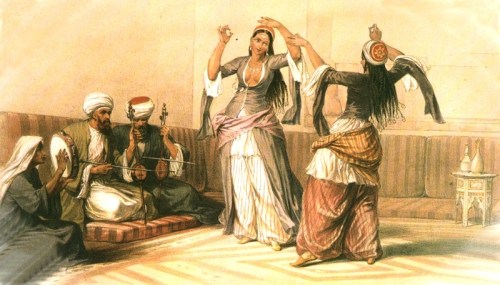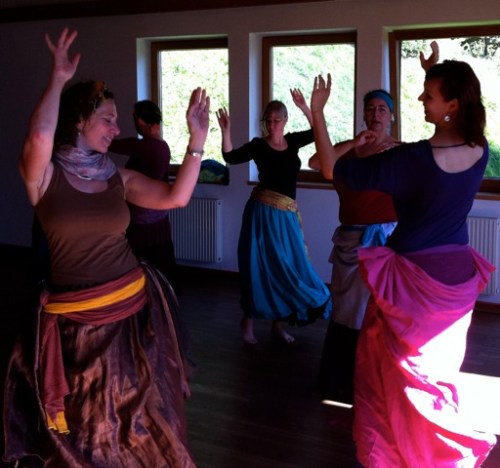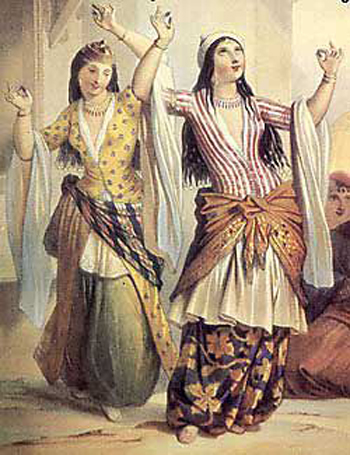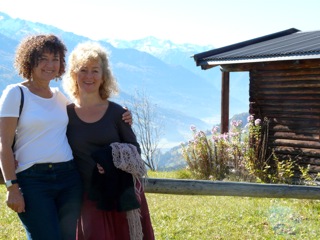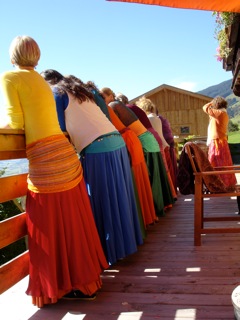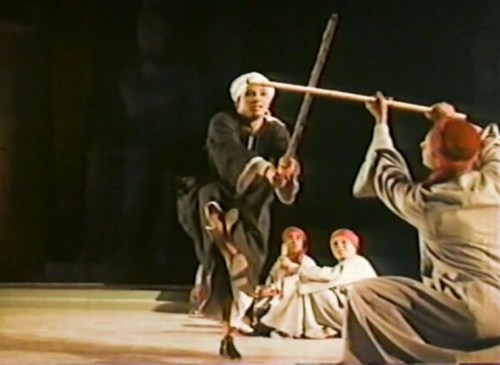

I am looking forward to teaching again this year in the beautiful city of Prato near Florence. It must be at least 20 years ago that Patrizia Pacini first invited me to teach Raqs Sharqi to her spirited and open hearted students. Each subsequent year I have had the opportunity to share with them my development and insights, and it is a special treat when we have had Tim Garside to inspire us with his music.
This year as last, the theme is to improvise with confidence to his latest music. The emphasis is on confidence. Students come to this dance for pleasure but also to learn a beautiful art form, and I have come to realise that the keys to both aspects are ease and simplicity. I am no lover of choreographies except when it is strictly necessary to coordinate several dancers on stage. For me the magic happens when we dance ‘in the moment’, spontaneously, freely, using the well practiced techniques of traditional Raqs Sharqi as a language to express our joyful creativity. And when we have the fortune to dance to live music, magic does indeed happen for dancers and audience alike.
Contact Patrizia Pacini tel 0039 347 6261330
BERLIN 22 and 23 June ’19 Contact: Susanne Donner
berlin -orientalscher-tanz.de tel ++49 (0)30 420 202 40
MUNICH 13, 14, 15 September and 15,16,17 November Contact: Erna Froelich
taqsim.de tel ++49 (0)89 342435
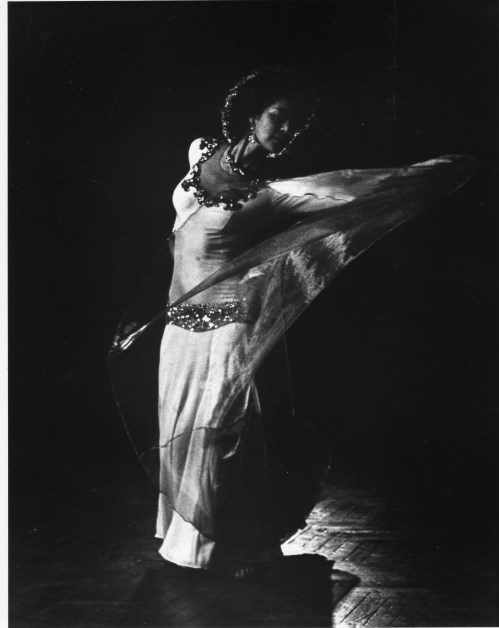
Liza Wedgwood dances Modern Sharqi
Adventurous and exhilarating workshops exploring both traditional and creative concepts, an encouragement for each dancer whatever her dance experience to find her own unique expression.
Modern Classical – new ideas, expanded use of space, freedom to integrate
untraditional music and concepts yet always adhering to basic principles.
Courtly Classical – intimate and refined, warmly communicative, in depth feel of traditional music and songs.
Dancing with the veil – more than an accessory . . . .(Mrs Thatcher’s handbag!)
but rather movement and sensuality of fabric, an extension of the lyrical flow of the spine, the weightlessness of air and space.
Susanne Donner wrote Liza lädt uns ein zu einem Wagnis anregenden Kurs, in dem sowohl traditionelle als auch kreative Konzepte erforscht werden. Dieser Workshop ist eine Ermutigung für jede Tänzerin, gleich welcher Vorerfahrung, ihren eigenen einzigartigen Ausdruck zu finden. Wir widmen uns dem modernen klassischen Sharqi und nehmen neue Ideen der Ausbreitung in den Raum auf. Wir etablieren unsere innere Freiheit für neue Konzepte, aber bewahren grundlegende Essenzen des Raqs Sharqi. Wir tanzen in innigem Bezug mit dem Schleier. Wir können seine Bewegung, seine Textur und seine Sinnlichkeit uns einverleiben und als Erweiterung der lyrisch fließenden Wirbelsäule erfahren. Das Schwebende des Schleiers, seine Leichtigkeit erhebt uns in die eigene fließende Schwerelosigkeit in Luft und Raum.
Mit großer Hingabe und Wachheit vermag Liza jeder Tänzerin auf ihrem individuellen Weg Türen aufzuzeigen oder gar zu öffnen, die sie in ihrer Entwicklung passieren wird. Manche ihrer Sätze sind mir Jahre geblieben, besonders, wenn ich sie nicht sogleich verstehen konnte, und mein Körper und meine Seele erst viel später im Stande waren, sie zu erfahren.
Erna Froelich wrote Liza bietet ihre Hingabe, langjährige Erfahrung und eigene Weiterentwicklung im Tanz an, um jeder Tänzerin auf ihrer Stufe zu helfen.
Jeder Workshop bietet eine sinnvolle Einheit für sich, aber wer es ermöglichen kann, das gesamte Wochenende zu kommen, wird Zeit finden, tief in den Tanz einzutauchen und mehr individuelle Förderung zu erfahren.

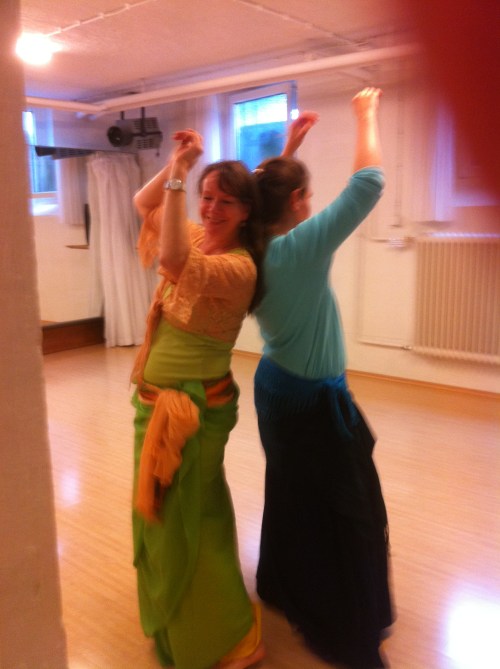

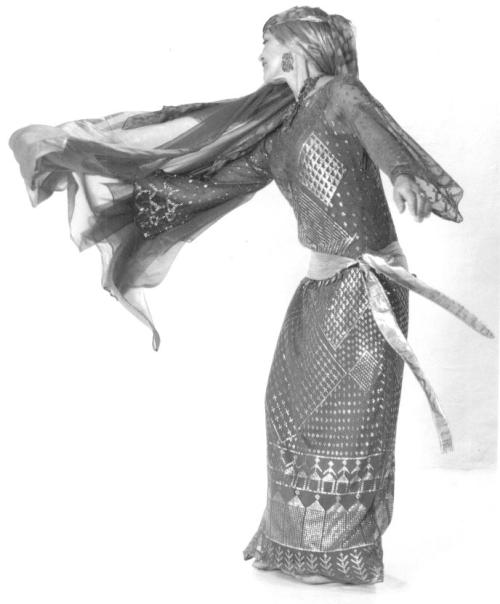 photo Simon Richardson
photo Simon Richardson
